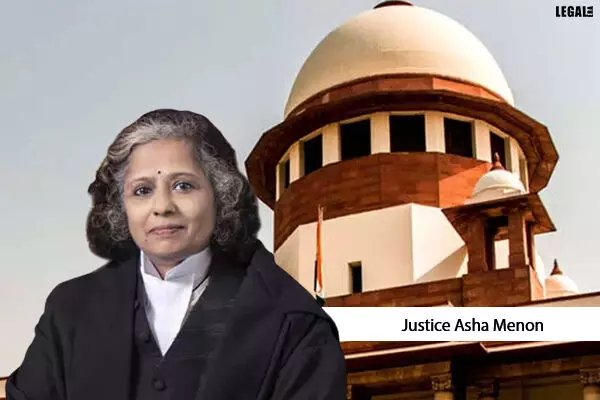- Home
- News
- Articles+
- Aerospace
- AI
- Agriculture
- Alternate Dispute Resolution
- Arbitration & Mediation
- Banking and Finance
- Bankruptcy
- Book Review
- Bribery & Corruption
- Commercial Litigation
- Competition Law
- Conference Reports
- Consumer Products
- Contract
- Corporate Governance
- Corporate Law
- Covid-19
- Cryptocurrency
- Cybersecurity
- Data Protection
- Defence
- Digital Economy
- E-commerce
- Employment Law
- Energy and Natural Resources
- Entertainment and Sports Law
- Environmental Law
- ESG
- FDI
- Food and Beverage
- Gaming
- Health Care
- IBC Diaries
- In Focus
- Inclusion & Diversity
- Insurance Law
- Intellectual Property
- International Law
- IP & Tech Era
- Know the Law
- Labour Laws
- Law & Policy and Regulation
- Litigation
- Litigation Funding
- Manufacturing
- Mergers & Acquisitions
- NFTs
- Privacy
- Private Equity
- Project Finance
- Real Estate
- Risk and Compliance
- Student Corner
- Take On Board
- Tax
- Technology Media and Telecom
- Tributes
- Viewpoint
- Zoom In
- Law Firms
- In-House
- Rankings
- E-Magazine
- Legal Era TV
- Events
- News
- Articles
- Aerospace
- AI
- Agriculture
- Alternate Dispute Resolution
- Arbitration & Mediation
- Banking and Finance
- Bankruptcy
- Book Review
- Bribery & Corruption
- Commercial Litigation
- Competition Law
- Conference Reports
- Consumer Products
- Contract
- Corporate Governance
- Corporate Law
- Covid-19
- Cryptocurrency
- Cybersecurity
- Data Protection
- Defence
- Digital Economy
- E-commerce
- Employment Law
- Energy and Natural Resources
- Entertainment and Sports Law
- Environmental Law
- ESG
- FDI
- Food and Beverage
- Gaming
- Health Care
- IBC Diaries
- In Focus
- Inclusion & Diversity
- Insurance Law
- Intellectual Property
- International Law
- IP & Tech Era
- Know the Law
- Labour Laws
- Law & Policy and Regulation
- Litigation
- Litigation Funding
- Manufacturing
- Mergers & Acquisitions
- NFTs
- Privacy
- Private Equity
- Project Finance
- Real Estate
- Risk and Compliance
- Student Corner
- Take On Board
- Tax
- Technology Media and Telecom
- Tributes
- Viewpoint
- Zoom In
- Law Firms
- In-House
- Rankings
- E-Magazine
- Legal Era TV
- Events
Delhi High Court rejects defamation plea filed by former PwC official

Delhi High Court rejects defamation plea filed by former PwC official
The bench found no error or perversity in the Tis Hazari Court's additional sessions judge's order
The Delhi High Court has dismissed a plea filed by Sarvesh Mathur, the former Chief Financial Officer (CFO) of PricewaterhouseCoopers Private Limited (PwCPL). He alleged that he was defamed and sidelined in the organization and forced to resign after he pointed out irregularities in the accounting firm's method of working.
The bench comprising Justice Asha Menon noted, "Criminal liability cannot be fastened on the basis of a person holding a position with nothing more to specify the role played by such a person in the commission of a crime."
The court added, "That apart, the conclusion of the Sessions Court that the use of the word 'disgruntled employee' was not slanderous, is a justified conclusion."
The petitioner had alleged that a PwC representative had defamed him in two newspaper articles by calling him a 'disgruntled employee' after he sought to expose irregularities at the firm. Previously, he had complained to the government authorities about the evasion of income tax, Benami transactions, falsification of books of accounts, and violation of the Foreign Exchange Management Act, (FEMA), 1999 by the company. These pertained to the bungling of hundreds of crores of rupees by PwC.
Mathur claimed that as a whistleblower his allegations were justified, as the Supreme Court had ordered investigations into the alleged illegal inflows from overseas and FEMA violations.
He claimed, he was forced to resign in December 2011 and was served a termination letter in 2012. The company had also made defamatory statements against him. Mathur added that after the articles were published, he filed a criminal defamation complaint against the newspapers in October 2018.
In August 2019, a metropolitan magistrate summoned the senior executives of PwC to face trial for criminal defamation. However, in the October 2020 order, the additional sessions judge (ASJ) at the Tis Hazari Court set aside the order. The ASJ concluded there was no material based on which the trial court could summon any of the accused persons.
The petitioner then approached the high court.
However, the court expressed, "It is for him (Mathur) to explain how litigation initiated by him became a subject matter of the publication. It is only fair reporting to seek a response from the person against whom the charges have been levelled."
The court added, "If the statement that the petitioner's employment was terminated in 2012 after it was found that he had retained and misused some of the company's proprietary information had adversely affected his prospects of employment, no such evidence was placed on record."
The court clarified that the petitioner must establish that PwC and its executives made or published imputations concerning him, intending to harm his reputation.
"Since the entire edifice of the case of the petitioner rests on the publication of these two articles, it was necessary to show how the respondents were connected to the publication. The petitioner has not done so," the court stated.
The court asserted that the reference in the article attributed to a 'spokesperson' could not be inferred to the respondents only because one was the chairman and the other the chief communications officer of the company.
Therefore, the court said, it found no error or perversity in the ASJ's order.


